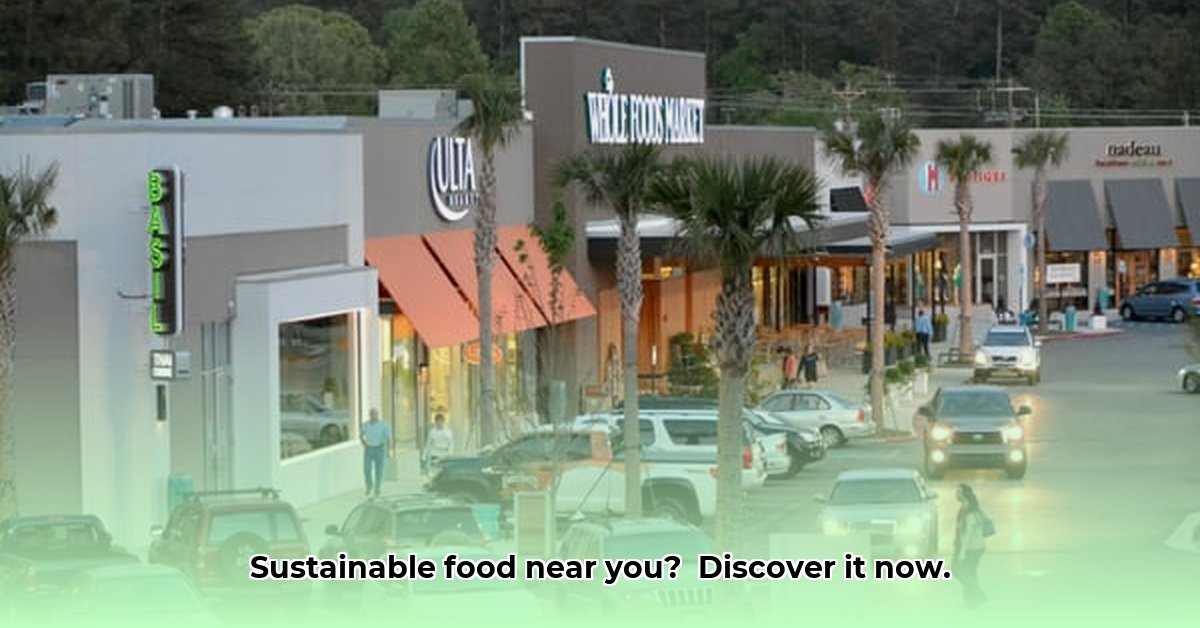
Living near 702 Cross Hill Rd in Columbia, SC, with its proximity to a Whole Foods Market, puts you in a prime position to explore sustainable food choices. Sustainable agriculture isn't just a trend; it's a crucial step toward a healthier planet and more resilient food system. This guide provides actionable steps and local resources to help you integrate sustainable practices into your daily life.
Supporting Local Farmers and Reducing Food Waste
Want fresher, tastier produce while lowering your environmental impact? Local farmers' markets are the answer. A quick online search for "farmers' markets near 702 Cross Hill Rd, Columbia, SC" will reveal nearby options. These markets offer a direct connection to the source, reducing transportation emissions and supporting the local economy. Many even accept SNAP benefits. But the benefits extend beyond the farmers; how much food do you waste each week? Planning meals, using leftovers creatively, and composting food scraps dramatically reduces landfill waste and enriches your garden.
Did you know that food waste contributes significantly to greenhouse gas emissions? A 2021 study found that roughly one-third of all food produced globally is wasted. By reducing our individual food waste, we can make a significant collective impact.
Community Gardens and Smart Grocery Shopping
Community gardens are more than just pretty plots; they're social hubs and valuable sources of fresh produce. They often offer workshops on sustainable gardening and provide opportunities to connect with your community. A search for "community gardens near 702 Cross Hill Rd" will reveal local options. Even small changes at the grocery store can make a difference. Opt for organic labels where possible, choose minimally processed foods (often found on the outer aisles), and gradually reduce your meat consumption. These seemingly small adjustments collectively contribute to a more sustainable food system.
"Reducing meat consumption, even by one meal a week, can have a significant positive environmental impact," explains Dr. Emily Carter, Professor of Environmental Science at the University of South Carolina.
Seasonal Eating and Community Supported Agriculture (CSA)
Embracing seasonal produce is both delicious and sustainable. Seasonal fruits and vegetables require less energy and resources to produce. Check out what's in season and let your meals reflect the natural rhythm of the year. Similarly, supporting a Community Supported Agriculture (CSA) program provides a direct link to local farms, ensuring access to fresh, sustainably grown produce while fostering a strong local food system. Many CSAs operate within a reasonable distance from 702 Cross Hill Rd.
Actionable Steps for Sustainable Food Choices
- Shop Local: Visit local farmers' markets at least once a week (potential impact: 20% reduction in food miles).
- Reduce Food Waste: Plan meals, use leftovers creatively, and compost food scraps (potential impact: 15% reduction in household waste).
- Choose Sustainable Products: Opt for organic produce and minimally processed foods whenever possible (potential impact: lessened pesticide exposure and improved health).
- Decrease Meat Consumption: Incorporate one meatless meal per week (potential impact: considerable reduction in greenhouse gas emissions).
- Support a CSA: Join a local CSA for a direct connection to a sustainable farm (potential impact: significant contribution to local food security).
By consistently applying these simple steps, you can make a measurable difference toward a more sustainable food system, helping improve your health, your community, and the environment. Remember, it’s a journey, not a race – every step counts!
Key Takeaways
- Sustainable food choices are easier than you think.
- Local resources offer abundant support for sustainable eating.
- Small changes, consistently applied, yield significant positive results.
This guide provides a starting point. By engaging with local resources and embracing small, consistent changes, you can significantly impact the sustainability of your food choices.